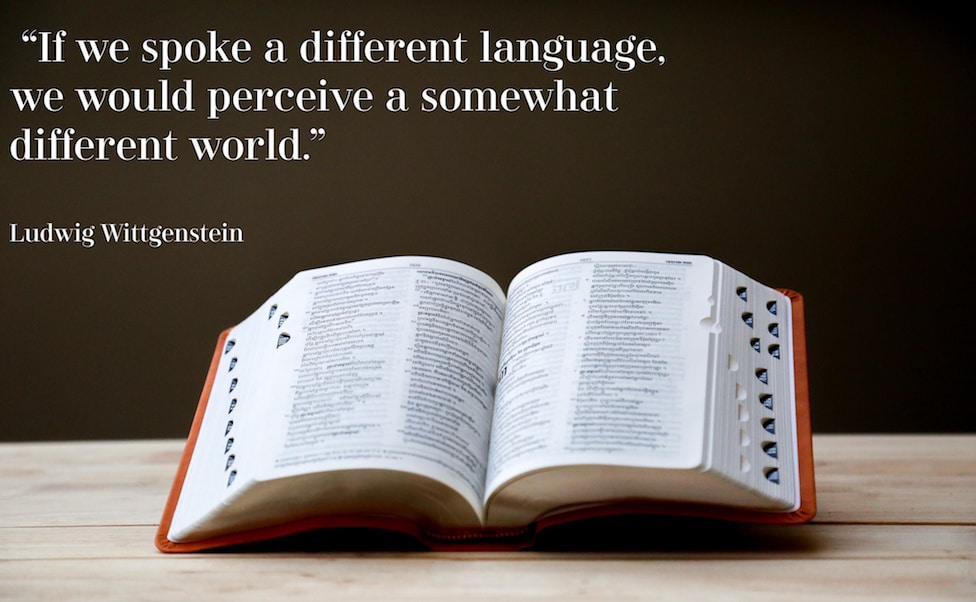
Words create worlds.
Words in turn have lives of their own.
I used to think that the words in the dictionary had been there forever. Like “binge-watch.” (Added by the Oxford Dictionary in 2018.)
I also thought that words stayed forever, but it appears to be a case of “use or lose.”
Some perfectly good words have gone the way of the albatross and been retired by the Oxford Dictionary.
No longer will we be able to say “Snollygoster” when we want to describe a dishonorable person. Given our times, I think we still need it. The word was a twist on snallygaster — a mythical creature that preys on poultry and children and is said to live around Frederick County, Maryland. The folks at Harry Potter know all about snallygasters so that word is safe for now.
Occasionally, words go as viral as J-Lo’s latest outfit. In 2006, a fake word, made up by a fake commentator, on a fake news show, was crowned “Word of the Year” by Merriam Webster. “Truthiness,” invented by the brilliant Steven Colbert, was said to mean “truth as you want it to be” as opposed to facts. Sadly, this word is still viral.
Verbacizing
Words are being created daily by adding an “ize” or “ing” to a noun. I call it verbacizing. This must make some writers cringe. I wince that business jargon like “on-boarding,” (integrating new employees into a business), has been accepted into the Oxford lexicon. Stop business-cizing words! (And you are welcome to make a word out of that.)
Translating across generations
If you want to speak with a teenager, there’s a raft of new words you should know, most of which have not yet made it into the Oxford. Since these were designed to be part of a secret code and will disappear as soon as I learn them, I’m not trying.
In the unlikely event that I’m invited to a teen party, I will buy an app that allows for simultaneous translation of teen-speak into English. With my phone and earbuds, I’ll be like a representative at the United Nations letting interpreters pipe words into me.
New with the pandemic
Oxford no longer makes us wait a year to receive new words. Between April and January 2020, they published a new set of have-to know words, which were already old by late March. Among them, (I quote):
- infodemic, n. “A proliferation of diverse, often unsubstantiated information relating to a crisis, controversy, or event, which disseminates rapidly and…”
- self-isolation, n.“The action, fact, or process of deliberately isolating oneself; an instance of this.
- WFH n. “Working (or work) from home, either as a regular or permanent alternative to office work or on an occasional or temporary basis.”
Do we get to delete these at the end of the pandemic?
As far as I know “Zooming,” which everyone knows is a new word, is not yet official. You’re late Oxford! (See verbacizing, above.)
New Oxford additions that reflect the culture
I wish these words weren’t so timely:
- awedde, adj.: Overcome with anger, madness, or distress; insane, mentally disturbed.” (Makes you think of…)
- Hater–no definition required, just remember the word didn’t exist a few years ago.
Goofy words
- Frankenfood (n): Genetically modified food.
- Guyliner (n): Eyeliner that is worn by men.
In the running but not yet accepted
- Lypophrenia. A vague feeling of sadness seemingly without cause.
Recent additions (pre-2020)
- Nomophobia (2018) Meaning fear or worry at the idea of being without your phone or unable to use it. (Who me?)
- Omnishambles (2019) means a situation that has been comprehensively mismanaged, characterized by blunders and miscalculations. Originally created to describe current British politics, it has clearly jumped the pond.
- Nepenthe – An old word that means something that makes you forget sorrow. It was the anti-sorrow potion given to Helen in Homer’s Odyssey. Now is it late-night comedy? CBD? Cat videos on Youtube?
Lost in translation–words from other languages for which we have no equivalent
- Pana po’o from Hawaii meaning, “The act of scratching one’s head in order to remember the location of a misplaced object.”
- Nefelibata (from the Portuguese). One who lives in the clouds of one’s own dreams.
- Komorebi is a Japanese word for “the interplay between light and leaves when sunlight shines through trees.”
- Saudade is a word from the Portuguese for a sad state of intense longing for someone or something that is absent (like meeting friends at live concerts?).
New words I am inventing
I don’t mind if you suggest these to the Oxford:
- Stretchophile: Someone coming out of the pandemic with a decided preference for stretch waistbands.
- Amaskiration: Sudden fury at someone not wearing a mask in a public place.
- Caffecupio: An intense desire for a cup of coffee with a friend, as in “like we did in the good old days.” (From the Latin Cupio, desire)

Now, you brave nefelibata. Go dream a few good words, then create a better world for them to describe.













One Response
What a fun blog. My son talked late because he couldn’t see our mouth when we spoke. Once he got glasses at the age of 3 his works started to make sense. I somehow understood his language being with him all of the time. Two of his favorite words were badadeedee and oolalala. I could’t tell you their meaning now 53 years later but they’ve stuck with me. They were so endearing to hear.